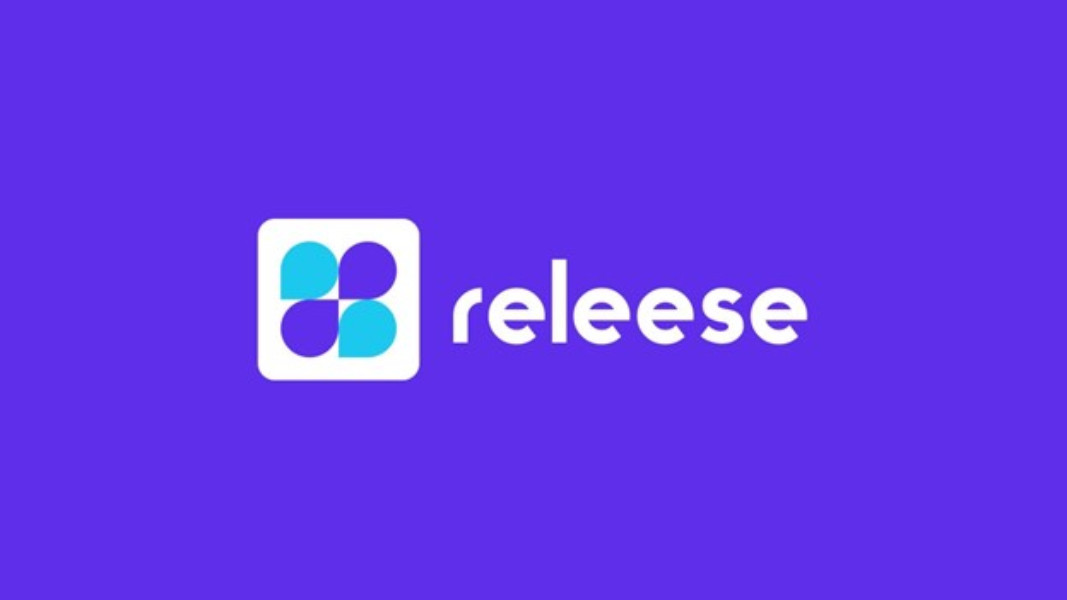
For those working in the modern music industry, it has become evident that the technology and processes in place for music releases are outmoded and in dire need of a refresh.
The newly launched platform Releese aims to be the solution for the new generation of music professionals as the first and only platform of its kind, streamlining core music industry business practices by offering a fully integrated platform that replaces the need to sign up with multiple individual services. Their goal is to put control back in the creator’s hands by offering a complete suite of tools that command productivity, efficiency, and transparency.
According to Releese’s CEO Maxence Pepin, “We’ve combined the tools necessary to build a music business that collaborates and distributes globally while connecting all layers of the industry with a creator-first mindset.”
Releese unites your marketing, distribution, communication, metadata, and files under one convenient dashboard accessible from anywhere. Their connected suite of products enables teams to manage and scale music business operations. Manage your entire music business in one place. Plan projects, share them with your team, and distribute them, all with Releese. It’s designed to help artists, record labels, artist managers, and their teams structure their business and assets, automate their workflow, and communicate efficiently between team members and collaborators.
CelebMix spoke with Maxence Pepin to find out more about the genesis of Releese, the challenges of designing such a platform, and the changes the music industry needs to make.
Hello Max, congratulations on the launch of Releese. Before we get into the platform, can you tell us a little about yourself?
Hello and thank you for having me. My name is Maxence, I am located in Montreal, Quebec, and have a passion for music and technology. I have been active in the music industry since 2017, I started out as an artist under the alias Midsplit and quickly became part of the indie dance community through Facebook groups. I have worked for some independent record labels, namely Tropikult, Strange Fruits, ChillYourMind. I have co-owned Sadboy Records and have run my own indie label named Hinky.
How did you come up with the concept for Releese?
During my time at ChillYourMind, I wanted to scale the business and its internal operations. At the time, we were putting out a few singles a month and were promoting them mostly on YouTube and Spotify. I managed to grow the team from 3 to 8 people within a couple of months and created our internal operations setup using “traditional” business tools such as Slack and Asana. Although these tools can get the job done, they were not really made for music as they lacked ways to collaborate with our artists and manage music releases.
When the operations were in place and we had signed a solid distribution deal, I decided to quit my position to start my next journey. That’s when I had an “Aha!” moment: What if we built a platform where the music industry goes to work?
The platform appears to be a one-stop shop of sorts for the music industry. For the independent artist, how can Releese be beneficial?
Releese is most definitely a one-stop shop for creators and music industry professionals to manage their music business on. Our platform is beneficial for creators as it allows them to bundle up multiple tools they would need to operate their careers from and have access to them in one place. Our early users (who are mostly artists) have mentioned that they feel much more productive and feel safer by using Releese as it enables them to essentially have their career on their phone.
Although this is all great, we wanted to push things further to make the music industry creator first, so we implemented unique technologies that command transparency and accountability: Smart contracts and splits need to be agreed upon by all shareholders before being able to distribute or publish music from the platform, every shareholder in a recording gets access to streaming and financial analytics in real-time, and we also give the opportunity to artists that would join our platform through a record label to gain access to services such as music publishing and neighboring rights collection which are often held behind closed doors in invite-only platforms.
And for everyone else?
Our platform is Creator-first, but it is definitely not Creator-exclusive. Many of our members are actually record labels that share our idea of how the music industry should be.
Our early record label members have seen their relationship with creators drastically improve due to the level of transparency and communication our platform provides. Artists felt like they had an easy way to reach their label and knew exactly what was going on with their releases.
These teams have also seen a great improvement in productivity and scalability, our platform is built to handle teams of 50+ people working together in real-time, and getting things organized in Releese is extremely intuitive and makes storing assets and collaborating internally or externally a breeze.
Who are the most prominent figures utilizing the platform now?
We have many prominent figures using the platform: Trap City (12m+ followers), Drama B (1m+ monthly listeners), Urbanstep (100m+ views).
How do you see Releese evolving in the distant future?
I see Releese becoming the go-to platform for working in the music industry, and that’s really where we are attempting to push it. We have been actively listening to our community and that is really what seems to be setting us apart from a traditional distributor, publisher, CRM, or music marketing platform. Having everything managed from a single place opens up opportunities for automation, and integrations and gives more leverage to our users over non-users.
We have an exciting 18-month roadmap we will reveal in the near future to show just how much we have in store. I think our platform will help accelerate the post-pandemic music industry rebound and will offer a healthy alternative to traditional music industry roles.
What would you say has been the biggest lesson you’ve learned in launching the platform so far?
The biggest lesson I’ve learned from getting to concept to launch day is that you need to persevere and learn, no matter how difficult things get. I’ve had many sleepless nights and have become overwhelmed to the point where I was shaking many times on our 18-month journey. I’ve managed to learn things I’ve never dreamed of knowing and have a very unique skill set. I thought I knew a lot about what I was doing and quickly realized that I knew nothing, and that surrounding yourself with people who can teach you something is of the utmost importance.
What was the biggest challenge?
After 6 months of building, we ran out of funding. Needless to say, our platform was far from being a usable product. I decided to learn how to write code, learned how cloud infrastructures work, learned how to build a team, and ultimately managed to take the platform to the finish line with a smaller team which I sustained by consistently taking personal debt and selling marketing services. I consider it a miracle that we survived that 12-month period, I honestly don’t think we had the odds in our favor.
As an entrepreneur, where/how do you seek inspiration?
I might have given the impression that I view the music industry as this horrible place where people don’t trust each other and that this pure evil controls everything, but the music industry is full of kind people that want to see growth and push art forward. I’ve had the opportunity to work with one of my entrepreneur inspirations: Stef Van Vugt, who is also known as Steve Void and is the founder of Strange Fruits.
I’ve learned a lot about music, business, music business, growth, and the importance of putting artists first as well as creating a great product. I am also a big Steve Jobs fan (how generic, I know), he embodies what it means to create a great product by any means necessary and the importance of having beauty within a business. We spent so much time making sure our platform looked and felt good, and that is truly due to these 2 people.
How else do you think the music industry needs to change?
I don’t believe the music industry needs to change many things in order to be in a significantly better place. There are a few practices that are antiquated like 360 deals, exclusivity periods, and other vague practices that lock in creators in ways that are often considered immoral and are non-existent outside of music that need to stop. The fact that these deals are called exploitation periods speaks volumes.
There are many companies that are attempting to fix problems in different ways than we are, and we are confident that the future will be bright. Many of these old practices will go out the window as new ways of working, collaborating, and growing emerge. I think there are many projects in the Web 3.0 space that are encouraging and share a similar ideology to Releese.
Follow Releese Website | Instagram | Twitter | Facebook | LinkedIn
